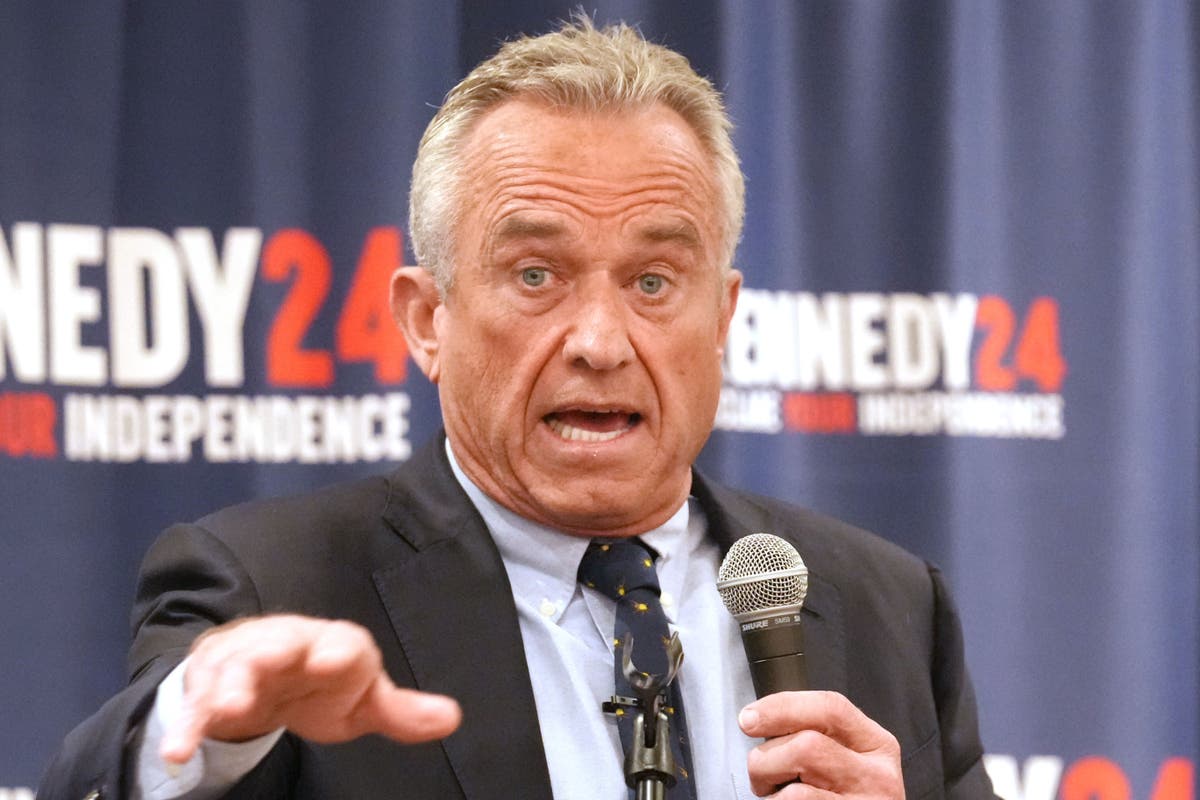Sign up for the daily Inside Washington email for exclusive US coverage and analysis delivered to your inbox
Receive our complimentary Inside Washington email
Robert F Kennedy Jr, an Independent candidate in the upcoming 2024 presidential election, has expressed his intention to migrate the “US budget onto blockchain,” leveraging the technology utilized by Bitcoin and other cryptocurrencies for transaction monitoring.
During a rally in Michigan on Sunday, Mr Kennedy proclaimed, “I plan to transition the entire US budget onto blockchain so that every American citizen has unrestricted access to scrutinize every budgetary allocation round the clock,” as reported by The Hill.
While Mr Kennedy’s proposal theoretically promises heightened transparency in the national budget, the practicality of transferring the entirety of the country’s financial transactions to the blockchain presents a formidable challenge. In December 2022, the Office of Management and Budget mandated federal agencies to complete the digitization of their records by June 2024, as numerous offices still rely on paper-based documentation, according to FedScoop.
Moreover, a fundamental flaw in Mr Kennedy’s strategy is that it addresses a nonexistent issue; the federal budget is presently accessible to the public, with federal expenditures meticulously recorded in the public domain.
“We will have 300 million pairs of eyes scrutinizing our budget, and any extravagant expenses, such as $16,000 for a toilet seat, will be readily apparent to all,” Mr Kennedy asserted.
In addition to advocating for anchoring the US dollar with Bitcoin instead of its current fiat valuation, Mr Kennedy has been accepting campaign contributions in Bitcoin over the past year.
While he advocates for contemporary digital currencies, Mr Kennedy stands in opposition to the concept of a central bank digital currency, a notion currently under consideration by the Federal Reserve.
A central bank digital currency (CBDC) would introduce a new form of currency overseen by the Federal Reserve for digital transactions within a nation.
Notably, Republicans, including Donald Trump, have largely opposed the implementation of a central bank digital currency, citing concerns about the government gaining unprecedented control and insight into Americans’ digital spending habits. Several nations have shown interest in or are in the process of developing their CBDCs, such as the UK with its digital pound.
Federal Reserve Chairman Jerome Powell has indicated that the central bank will only pursue a CBDC if directed to do so through congressional legislation.
Stand With Crypto, a nonprofit organization affiliated with advocates and currency exchange Coinbase, has lauded Mr Kennedy for his robust support of cryptocurrencies and advocacy for “common-sense regulations” within the digital currency sector.
Furthermore, Mr Kennedy’s stance on digital currencies contrasts with that of Joe Biden, whom the organization rates as “against” cryptocurrencies.
Speaking at the ETHDenver cryptocurrency conference in early March, Mr Kennedy drew parallels between “transactional freedom” and freedom of speech.
“Transactional freedom holds as much significance as freedom of expression,” he conveyed to the audience, as reported by Axios.
In his address, Mr Kennedy vowed to issue executive orders to obstruct the establishment of a central bank digital currency if elected, asserting that such initiatives jeopardize Americans’ constitutional rights.
He further endeavored to embrace a popular cryptocurrency meme, “HODL,” a deliberate misspelling of “hold” signifying the practice of retaining one’s crypto assets with the belief in their appreciating value.
In a unique twist on the “HODL” meme, Mr Kennedy adapted Mr Biden’s “Build Back Better” slogan, advocating to “BUIDL Back Better” if elected.

